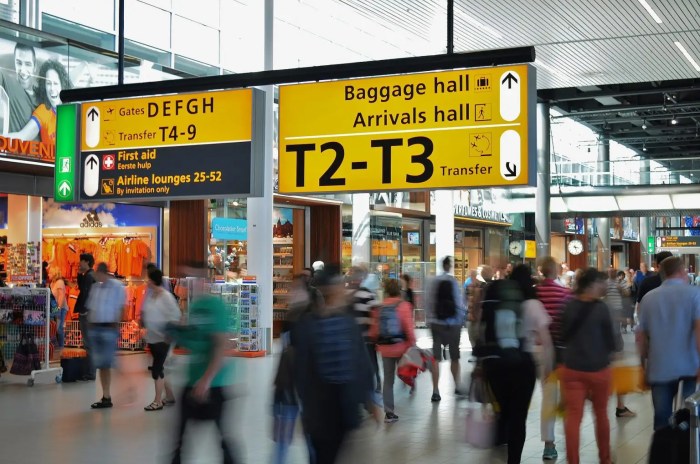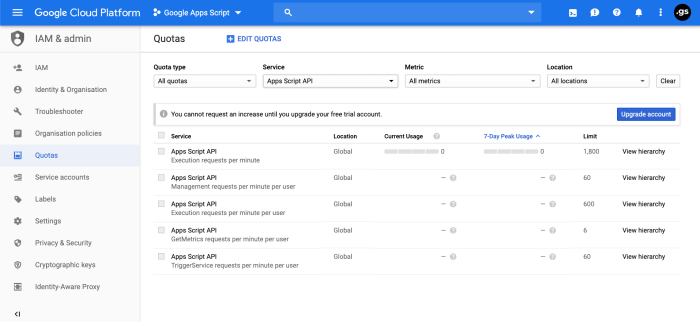Best Site for Last Minute Travel Deals
Best site for last minute travel deals? Snagging amazing last-minute travel deals can feel like winning the lottery, but with a little know-how, it’s more like playing the odds in your favor. This guide will equip you with the strategies, tips, and resources to find the best websites and deals, helping you transform last-minute travel anxieties into exciting adventures. We’ll cover everything from understanding how these deals work to avoiding potential pitfalls and securing your dream getaway without breaking the bank.
We’ll explore different types of last-minute deals, compare popular websites, and teach you how to use price comparison tools effectively. Learn to identify reliable sites, navigate the booking process, and understand the factors influencing pricing, so you can confidently book your next adventure at a price that suits your budget. Get ready to become a last-minute travel pro!
Defining “Last Minute Travel Deals”

Source: smartertravel.com
Last-minute travel deals refer to discounted travel packages or individual travel components (flights, hotels, car rentals) offered closer to the departure date. These deals are distinct from early bird discounts, which incentivize booking well in advance, and regular travel packages, which are offered at standard prices throughout the booking period. The key differentiator is the timing: last-minute deals aim to fill unsold inventory, while early bird discounts aim to secure bookings early on.
Last-minute travel deals are influenced by a complex interplay of factors. Seasonality plays a crucial role; off-season travel often sees lower prices due to reduced demand. Conversely, peak seasons, holidays, and popular events will likely have higher prices, even for last-minute bookings. Demand significantly impacts pricing; if many people are seeking travel at the last minute, prices may not be as heavily discounted. Airline and hotel policies also influence pricing. Airlines and hotels may adjust their pricing algorithms to reflect unsold inventory and potential revenue loss, leading to varied discounts. Cancellation policies and other operational factors also play a part.
Factors Influencing Last-Minute Travel Deal Pricing
Several factors contribute to the pricing of last-minute travel deals. High demand periods, such as school holidays or major events, will often see higher prices despite the last-minute nature of the booking. Conversely, shoulder seasons (the periods just before and after peak seasons) can present opportunities for better deals as demand eases. Airlines and hotels use sophisticated algorithms to dynamically adjust prices based on real-time demand and unsold inventory. These algorithms consider factors like the number of available seats or rooms, competitor pricing, and historical booking data. Weather conditions and unforeseen events can also influence pricing; for example, a sudden drop in demand due to a natural disaster might lead to unexpectedly low prices. Finally, the specific policies of individual airlines and hotels regarding last-minute cancellations and changes will affect the pricing strategies they employ.
Comparison of Last-Minute Travel Deals Across Modes
The availability and characteristics of last-minute deals vary across different travel modes. While air travel often presents the most significant price fluctuations, land and sea travel also offer opportunities for last-minute savings.
| Travel Mode | Typical Discount Level | Availability | Factors Influencing Pricing |
|---|---|---|---|
| Air Travel | Can range from minimal to substantial, depending on demand and route popularity. | Generally available, but availability decreases closer to departure. | Fuel prices, route popularity, competition, time of year, day of the week. |
| Land Travel (e.g., trains, buses) | Often moderate discounts, especially on less popular routes or during off-peak times. | More predictable availability compared to air travel. | Seasonality, route popularity, competition, fuel prices. |
| Sea Travel (e.g., cruises, ferries) | Discounts can be significant, especially for cruises with unsold cabins. | Availability varies greatly depending on the cruise line and time of year. | Seasonality, ship capacity, itinerary popularity, competition. |
Popular Last-Minute Travel Deal Websites

Source: officialtop5review.com
Finding the best last-minute travel deals often involves knowing where to look. Many websites specialize in connecting travelers with discounted flights, hotels, and packages, but their strengths and weaknesses vary. Understanding these differences can save you time and money.
Websites offering last-minute travel deals typically fall into a few categories, each with its own advantages and disadvantages. Choosing the right platform depends on your travel style and priorities. For example, if you’re only looking for a cheap flight, a flight-focused website might be best. However, if you prefer a bundled package including flights and accommodation, a package deal site would be more suitable.
Flight-Only Websites
These websites specialize in finding the cheapest flights, often focusing on last-minute deals. They typically use sophisticated algorithms to scan numerous airlines and present the best options available. Examples include Skyscanner, Google Flights, and Momondo.
- Pros: Wide selection of airlines, often uncover hidden deals, user-friendly interfaces, price comparison tools.
- Cons: May not include baggage fees or other ancillary costs in initial price, limited customer service compared to booking directly with an airline, can be overwhelming with the sheer number of options presented.
Package Deal Websites
These websites offer bundled deals that include flights and hotels (and sometimes other elements like car rentals or activities). They can be a great option for simplifying the booking process and potentially saving money compared to booking each element separately. Examples include Expedia, Booking.com, and Kayak.
- Pros: Convenience of booking flights and hotels simultaneously, often offer discounts for bundled packages, provide a single point of contact for customer service.
- Cons: Less flexibility in choosing individual components, may not always offer the absolute cheapest prices for each element when compared to booking separately, package options might be limited for specific destinations or travel dates.
Destination-Specific Websites
These websites focus on specific destinations or regions, offering deals tailored to those locations. They often partner with local businesses to provide a more immersive travel experience. While fewer in number compared to general travel sites, they can be invaluable for finding unique and highly discounted last-minute options in a particular area. For example, a website specializing in last-minute deals to the Caribbean or to specific European cities.
- Pros: Specialized knowledge of the destination, access to local deals and experiences, often cater to specific interests (e.g., adventure travel, luxury getaways).
- Cons: Limited geographic scope, may not offer deals for other destinations, could have less competitive pricing compared to broader travel sites.
Finding the Best Deals

Source: lucandjune.com
Snagging a last-minute travel deal requires more than just luck; it’s about employing smart strategies and knowing where to look. By being flexible and using the right tools, you can significantly reduce the cost of your trip, even when booking at the eleventh hour. This section Artikels effective techniques for finding incredible last-minute travel bargains.
Flexibility is your greatest weapon in the fight for last-minute travel savings. Airlines and hotels often slash prices to fill empty seats and rooms, making last-minute bookings surprisingly affordable if you’re open to adjusting your plans. The more flexible you are with your dates and destinations, the better your chances of finding a fantastic deal.
Flexibility in Travel Dates and Destinations
Being flexible with your travel dates significantly increases your chances of finding a lower price. Mid-week flights and travel during the shoulder seasons (periods just before or after peak tourist seasons) are often cheaper. Similarly, consider alternative destinations. Instead of focusing on a specific city, explore nearby regions or even consider a different country altogether within a similar geographical area. For example, instead of London, explore nearby cities like Manchester or Birmingham; or instead of Paris, consider exploring other charming cities in France. This openness can unlock surprisingly affordable options.
Using Price Comparison Tools and Travel Aggregators
Effectively using price comparison websites and travel aggregators is crucial for securing the best last-minute deals. These tools search across multiple platforms simultaneously, saving you the time and effort of checking individual websites.
- Start your search early, even if you’re booking last minute. While you’re booking last minute, it’s still beneficial to start your search a few days in advance. This allows you to track price fluctuations and identify potential trends.
- Use multiple aggregators. Don’t rely on just one website. Compare results from several aggregators, such as Google Flights, Skyscanner, Kayak, Expedia, and Momondo. Each site may have different deals available.
- Utilize incognito mode. Many websites use cookies to track your searches and may increase prices based on your browsing history. Using incognito mode prevents this from happening.
- Set up price alerts. Most aggregators allow you to set up price alerts for specific routes or destinations. This notifies you when prices drop, allowing you to act quickly and secure the best deal.
- Be aware of hidden fees. Carefully review the total cost, including baggage fees, seat selection charges, and other potential add-ons. Sometimes, a seemingly lower initial price can become more expensive with hidden costs.
By following these strategies and using price comparison tools effectively, you can significantly improve your chances of finding amazing last-minute travel deals. Remember, the key is flexibility and diligent searching.
Potential Pitfalls of Last-Minute Travel: Best Site For Last Minute Travel Deals

Source: hearstapps.com
Snagging a last-minute travel deal can feel like winning the lottery, but remember that even the best deals come with potential downsides. While the thrill of spontaneous adventure is undeniable, it’s crucial to understand the risks involved before you pack your bags. Unexpected issues can quickly turn your dream vacation into a stressful experience.
Last-minute travel often means less choice and potentially higher costs. You might find yourself with fewer flight options, less desirable hotel rooms, or even higher prices than if you had booked in advance. This is especially true during peak travel seasons or for popular destinations. Flexibility is key when booking last minute; be prepared to compromise on your ideal travel dates or destination if necessary to secure a good deal.
Limited Availability and Higher Prices
Booking last minute severely restricts your options. Airlines and hotels release a limited number of seats and rooms at discounted prices closer to the departure date. However, once these are gone, the remaining inventory is typically priced higher to reflect the reduced availability and increased demand. For example, imagine trying to book a flight to Hawaii during the holiday season just a week before departure; you’re likely to encounter significantly higher prices and a limited selection of flight times. Similarly, hotel rooms in popular tourist areas will be more expensive and less likely to be available.
Compromised Itinerary and Flexibility
Spontaneity is fun, but last-minute bookings often mean less control over your itinerary. You might not get your preferred flight times, hotel location, or even the type of room you’d hoped for. This lack of planning can lead to unexpected inconveniences, such as inconvenient layover times, long commutes to your hotel, or a less-than-ideal room. For instance, you might end up with a flight that involves multiple layovers, adding hours to your travel time, or a hotel far from the city center, requiring expensive taxi rides.
Potential for Hidden Costs, Best site for last minute travel deals
Last-minute deals sometimes hide extra fees. While the initial price might seem attractive, you could encounter unexpected surcharges for baggage, seat selection, or other services. Furthermore, booking travel insurance might be more expensive or less comprehensive when purchased at the last minute. Always read the fine print carefully and factor in potential hidden costs to get a true picture of the total expense. This could significantly impact your budget and spoil the trip if not carefully considered.
Comparison: Booking Last Minute vs. Booking in Advance
| Feature | Booking Last Minute | Booking in Advance |
|---|---|---|
| Price | Potentially higher, but sometimes lower for unsold inventory | Generally lower, better deals available |
| Availability | Limited choices, fewer options | Wider selection of flights, hotels, and activities |
| Flexibility | Less flexibility with dates, times, and accommodations | More flexibility to adjust plans as needed |
| Planning | Requires less planning but increases stress | Requires more planning but reduces stress and potential issues |
Types of Last-Minute Travel Deals

Source: travelbestbets.com
Snagging a fantastic last-minute travel deal requires understanding the different types of offers available. Knowing the characteristics of each type can significantly improve your chances of finding the perfect getaway at a steal. These deals aren’t all created equal, so let’s explore the landscape.
Flash Sales
Flash sales are short-lived promotions offering deep discounts on flights, hotels, or vacation packages. These deals are typically time-sensitive, lasting only a few hours or a day, creating a sense of urgency. Airlines and travel agencies use flash sales to fill empty seats or hotel rooms quickly. The catch? You need to be ready to book instantly; hesitation means missing out. Benefits include potentially massive savings, but the limited availability and short timeframe are significant drawbacks.
Error Fares
Error fares are accidental pricing glitches by airlines or booking websites. These errors result in significantly lower-than-usual prices, sometimes even ridiculously cheap. While incredibly attractive, these deals are often short-lived, as the mistake is quickly corrected. Airlines may not honor the error fare, leaving you without a booking and potentially out of pocket if you’ve already paid. The benefit is the potential for extreme savings, but the risk of cancellation is substantial.
Loyalty Program Discounts
Many airlines and hotel chains offer loyalty programs that reward frequent travelers with exclusive discounts and perks, including last-minute deals. These programs often provide members with access to special sales or priority access to limited-availability offers. The benefit is consistent access to discounts and potentially better deals than the general public, but requires consistent usage and building up points within the specific program.
Price Fluctuation Illustration
Imagine a graph. The X-axis represents time leading up to departure (e.g., 3 months, 1 month, 1 week, 1 day before). The Y-axis represents price. The line starts relatively high, representing normal prices. As the departure date approaches, the price generally fluctuates. Sometimes it dips slightly (perhaps due to lower demand), but more often it climbs, reflecting the higher cost of last-minute bookings. However, there are occasional sharp downward spikes, representing flash sales or error fares. These spikes are short-lived and unpredictable. The graph ultimately shows a general upward trend as the departure date gets closer, punctuated by the occasional, but rare, dramatic price drop. Think of it as a mountain range with jagged peaks and valleys, the peaks being the higher prices and the valleys representing the fleeting, precious last-minute deals.
Securing the Deal

Source: smartertravel.com
Snagging a last-minute travel deal is exciting, but the booking process requires careful attention to detail. This section Artikels the steps involved in securing your deal, ensuring its legitimacy, and understanding what to expect in your confirmation.
The process typically involves selecting your travel options (flights, hotels, etc.), providing personal information, choosing a payment method, and reviewing your booking before finalizing it. Always double-check everything before committing to the purchase.
Booking Process
Booking a last-minute deal usually follows a similar process to any other online booking. First, you’ll select your desired travel dates and destination. Next, you’ll choose your flights and/or accommodation from the available options presented by the website. You’ll then need to input your personal details, including your name, passport information (if applicable), and contact information. Finally, you’ll select your preferred payment method and review all the details of your booking before confirming the purchase.
Payment Methods and Security
Reputable travel websites offer various secure payment options, including credit cards, debit cards, and sometimes even PayPal. Look for secure payment gateways indicated by “https” in the website address and a padlock icon in your browser’s address bar. Avoid websites that only accept wire transfers or unusual payment methods, as these are common red flags for scams. Always use a secure Wi-Fi connection when making online transactions.
Verifying Website Legitimacy
Before entering any personal or financial information, verify the legitimacy of the travel website. Look for reviews from other users, check if the website has a physical address and contact information, and verify that the domain name is registered and secure. Be wary of websites with poor grammar, spelling errors, or overly generic designs. Checking independent review sites and comparing prices across multiple platforms can also help you identify potential scams.
Booking Confirmation Documents
After completing your booking, you’ll receive a confirmation document, typically via email. This document should include your booking reference number, the dates of your travel, the details of your flights or accommodation (including flight numbers, hotel name and address), the total cost, and the payment information. Carefully review this document to ensure all the details are correct. Discrepancies should be reported to the travel provider immediately. Examples of confirmation documents include an e-ticket for flights or a hotel booking confirmation with a unique reservation number. Some providers might also offer a mobile app where you can access and manage your booking details.
Conclusion

Source: villaexperience.com
So, are you ready to embrace the thrill of last-minute travel? By understanding the dynamics of last-minute deals, leveraging the right websites, and employing smart strategies, you can unlock incredible travel opportunities at fantastic prices. Remember, flexibility is key, and a little research goes a long way. Now go forth and conquer those last-minute travel deals! Happy travels!





